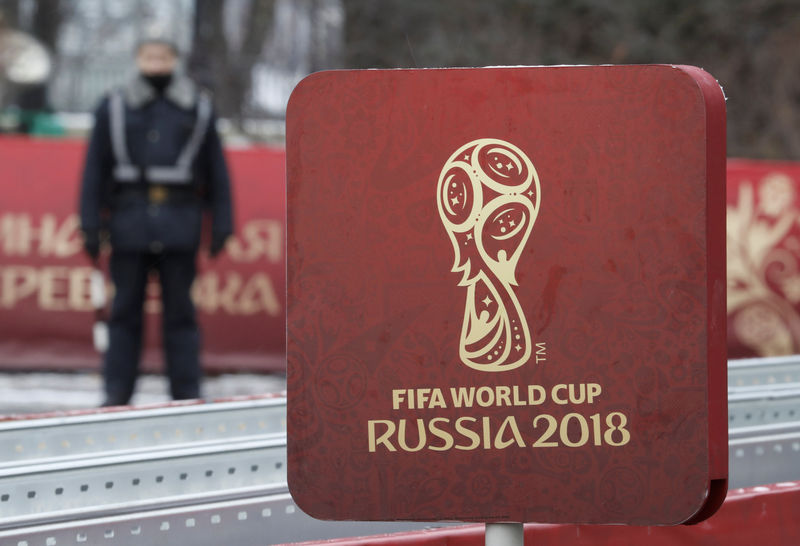By Polina Devitt and Gabrielle Tetrault-Farber
MOSCOW (Reuters) - Grain exporters in southern Russia are seeking government assurances that shipments will not be disrupted during the World Cup football finals because of tight security on roads and at ports, industry sources said.
Local industry players have raised their concerns at talks with regional officials in the city of Rostov-on-Don, which has important grain terminals and will host matches during the tournament starting in June, the sources said.
They fear restrictions on access to ports and roads could oblige them to decline contracts that would involve grain exports from Rostov-on-Don during the World Cup, they said.
"A significant part of the (grain) sector is concerned," a source in the agriculture industry told Reuters. "But there have so far been no instructions from officials on the issue."
The next talks are expected early this month, another industry source said.
It is too early to estimate how significant the disruption might be during the month-long tournament, the sources said.
Ports on the nearby Azov Sea and the Don River, which runs through Rostov-on-Don, account for about 20 percent of Russia's grain exports per season, officials say. Global commodities merchants Cargill (CARG.UL), Bunge and Louis Dreyfus [AKIRAU.UL] operate terminals in the Rostov area.
In the current 2017/18 marketing season ending on June 1, Russia, one of the world's top grain exporters, is expected to supply more than 50 million tonnes abroad.
Islamic State-linked groups have called for attacks on Russia in retaliation for Moscow's involvement in the military campaign against the militant group in Syria. Security services have already started tightening access to passes for ports near Rostov-on-Don, a city of more than 1 million people.
But regional officials are still awaiting details of the full security operation planned by the Federal Security Service (FSB), a successor to the KGB Soviet security police, and this is hindering progress at the talks, one of the sources said.
"There is a risk that exporters will have to sit at the stadium watching football instead of trading grain," said Andrey Sizov, managing director of the SovEcon agriculture consultancy in Moscow, who is not involved in the talks.
TRANSPORT RESTRICTIONS
The FSB did not reply to a request for comment. The World Cup local organising committee declined to comment, referring all questions to the regional authorities.
Asked what was being done to address grain producers' concerns, the Rostov region's authorities said the matter was still being worked on.
The Agriculture Ministry said there would be no difficulties. Russian Railways, the state railway operator, said the transportation of football fans between World Cup host cities would not interfere with the movement of cargo.
Grain harvesting in the Rostov region usually starts in the second half of June. Even if the harvest were delayed until after the World Cup, Russia has a huge carry-over stock of grain ready for export after a record crop last year.
Security measures for the World Cup were outlined in a decree signed by President Vladimir Putin, including banning some buses from host cities and limiting the use of airspace and waterways over a 62-day period. They come into force on May 25.
Security was heavy during the last major sporting event hosted by Russia, the 2014 Winter Olympics in Sochi, and the Games passed off without major security incidents.
But arranging World Cup security is a much bigger operation as matches will be played in 11 cities and there is uncertainty over how the measures will be implemented in each host city.
Rostov-on-Don will host four group matches and one round-of-16 match between June 17 and July 2. Obtaining access to the city's port areas has already become more complicated, a source in a regional grain transportation firm said.

"If previously you could get a pass to the port from border guards, now you need to ask for it from the FSB's office," he said.